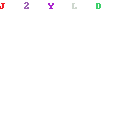
Ginseng root can be found mostly in Asia and North America, and has been use as medicine and tonic amongst the peoples of China, Korea, Thailand, Vietnam and Manchuria, as well as amongst Native Americans, for untold thousands of years. Frequently used as a potent preventative rather than a curative, it has also demonstrated tremendous therapeutic benefits for a wide variety of conditions. If taken regularly it increases vitality, and can extend... your life span.
A perennial plant, ginseng is often found in heavily wooded areas and requires rich soil to thrive. Ginseng usually takes several years to mature, with most roots cultivated when the plant is between 3-10 years old. After too many years ginseng and its root can begin to degenerate, and the root
 may become pitted and wooden.
may become pitted and wooden.The plant itself is very attractive, with well shaped green leaves and bright red berries; however it is only the root that has any medicinal value. Its original name means Man Root, due to the shape of the ginseng root which strongly resembles the form of a human body.
Ginseng is a member of the Araliacae family. The American ginseng plant, Panax Quinquefolius, has become in such high demand in Asia that more than 85% of American grown ginseng is exported to asian markets.

- Opening the mind
- Strengthening the body
- Improving memory
- Increasing vitality
- Extending endurance
- Cleansing the body of stress
- Fighting fatigue
- Resisting disease
- Bolstering immunity
- Balancing metabolism
- Preventing headaches
- Treating sleep disorders and overcoming insomnia
- Ginseng has had beneficial effects on women suffering post-menopausal symptoms.
- Ginseng has also demonstrated clinical improvements in virility among men, and effected improvements in conditions of sexual dysfunction for both sexes.
